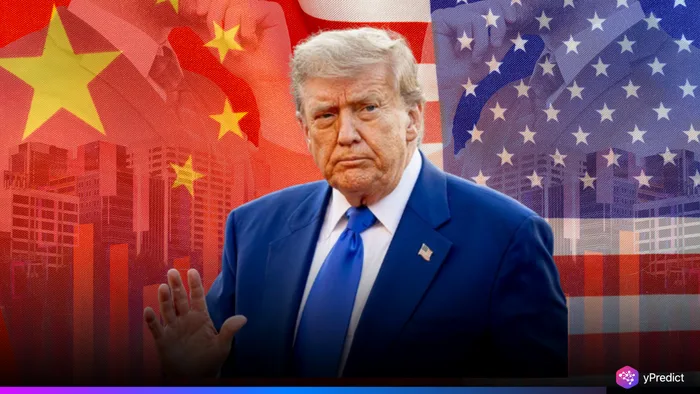
Tensions between the United States and China have escalated again after Donald Trump revived tariff threats on Chinese goods. China responded with a strong warning, stating that any move to damage its trade interests would trigger firm retaliation. Trump’s planned tariffs, set to start on August 1, come just weeks after both nations reached a tentative trade framework. Beijing criticized the move, calling it a threat to global supply chains and market stability.
China also warned other countries against making trade deals with the US that could sideline Chinese firms. Officials emphasized that China will not stay silent if its role in global trade comes under threat. The People’s Daily, China’s official newspaper, said that open dialogue remains the best path forward. However, with the deadline nearing and rhetoric intensifying, the chances of a renewed tariff war continue to rise. Global investors now face rising uncertainty around future trade deals.
Trump’s New Tariff Push Sets the Stage for Fresh Conflict
Donald Trump has once again jolted the global trade system. On Monday, he notified trade partners of plans to sharply raise tariffs beginning August 1. Although earlier rounds of tariff hikes had been delayed, the former president now appears set on applying full pressure unless favorable deals are struck.
China has until August 12 to meet US conditions, failing which new import restrictions may take effect. The proposed tariffs include severe increases, with rates exceeding 100% in some cases. This has brought the average US tariff on Chinese goods to a staggering 51.1%, compared to China’s average duty of 32.6% on US imports.
China’s Official Response: Dialogue, Not Deadlines
China’s state-run newspaper People’s Daily, through its foreign affairs column “Zhong Sheng,” emphasized cooperation as the only productive route forward. The commentary stressed that Trump tariffs were not only unfair but constituted economic coercion. The piece called these actions “bullying” and warned that setting artificial deadlines could derail all progress.
China insists it will only defend its rights through principled resistance. The message to the US is clear: if trade talks are to succeed, they must be grounded in mutual respect, not unilateral threats.
China Warns Global Partners Over Backroom Trade Deals
China’s concerns are not just focused on Washington. It has taken aim at countries exploring tariff deals with the US that could undercut China’s role in the global supply chain. One example cited is Vietnam, which recently secured a deal reducing tariffs from 46% to 20%, but agreed to a 40% levy on goods rerouted through it from China.
Beijing made its position clear: such actions amount to sacrificing Chinese interests, and China will respond firmly to protect its position in global commerce. This threat of supply chain retaliation adds a new layer of risk to already fragile global trade routes.
Markets React as Trade Uncertainty Rises
Worldwide markets suffered a dramatic reaction to the growing tension. The Japanese and South Korean stock markets fell after Trump announced new tariffs. The addition of new countries like South Africa and Malaysia unsettled investors’ mentality moreover.
With no immediate resolution, the uncertainty contingent on US-China trade tension, which is having a global effect, has now created uncertainty and volatility on an international basis. Businesses are now apprehensive about interrupted supply lines, increased costs, and trade arrangements that will alter and re-shape the global trade space.







